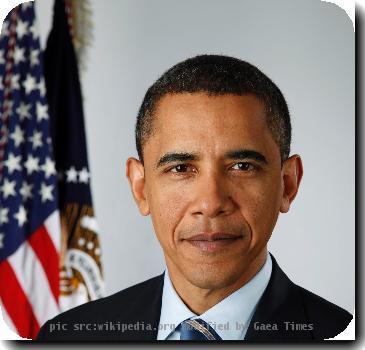Citing war weariness, Clinton calls allied support in Afghanistan crucial to winning
By Robert Burns, APFriday, December 4, 2009
Clinton says allies can help turn the Afghan tide
BRUSSELS — Some two dozen countries will send an estimated 7,000 more troops to Afghanistan next year, an infusion of forces that U.S. Secretary of State Hillary Rodham Clinton said Friday is crucial to turning the tide in the long war.
NATO Secretary-General Anders Fogh Rasmussen of Denmark told reporters at NATO headquarters that at least 25 nations would provide the additional forces in Afghanistan in 2010, “with more to come.”
The troop estimate was 2,000 higher than the 5,000-strong pledges that Fogh Rasmussen cited Tuesday, after President Barack Obama announced his decision to bolster the United States’ war effort. Obama said he will send another 30,000 U.S. troops to Afghanistan by next fall.
“The strongest message in the room today was solidarity,” Fogh Rasmussen said. “Nations are backing up their words with deeds.”
Clinton told allied foreign ministers Friday that it was essential that contributions to the war effort be provided as quickly as possible. She thanked Italy for its announcement that it will send another 1,000 troops, and Britain for its pledge of another 500, but she said nonmilitary assistance is equally important.
“The need for additional forces is urgent, but their presence will not be indefinite,” she told the North Atlantic Council, NATO’s highest political council.
Later, she told a news conference that U.S. and NATO forces need additional forces as well as extra capabilities.
“We have gone a very long way toward meeting those needs today,” she said.
U.S. Navy Adm. James Stavridis, the top NATO and U.S. commander in Europe, said in an Associated Press interview during a break in the talks he believes several thousand more non-U.S. troops may be contributed next year, in addition to the 7,000 cited by Fogh Rasmussen.
“What we are all underlining to potential troop contributors is that we are truly asking for emphasis in the training area,” Stavridis said. “And what I’m hearing is that we’ll get very good responses.”
According to a copy of Clinton’s prepared remarks to the closed-door meeting, she told the gathered ministers that “the pace, size, and scope of the drawdown will be predicated on the situation on the ground.”
“If things are going well, a larger number of forces could be removed from more areas,” she said. “If not, the size and speed of the drawdown will be adjusted accordingly.”
In his remarks to reporters, Fogh Rasmussen made a similar point.
“Transition (to Afghan control) does not mean exit,” he said.
Clinton acknowledged the sacrifice, in blood and treasure, that many allied countries have paid in Afghanistan over the past eight years.
“Today, our people are weary of war,” she said. “But we cannot ignore reality. The extremists continue to target innocent people and sow destruction across continents. From the remote mountains of Afghanistan and Pakistan, they plot future attacks. As Secretary-General Fogh Rasmussen said earlier this week, ‘This is our fight, together.’ And we must finish it together.”
There are now about 38,000 non-U.S. foreign troops in Afghanistan, along with some 70,000 U.S. troops. The additional U.S. troops to be sent by Obama and the foreign commitments cited by Fogh Rasmussen would take the overall total to about 145,000 by the end of next year.
The Afghan national army now has about 97,000 soldiers and is scheduled to grow to 134,000 by next October.
Clinton sought to strike a delicate balance between stiffening allied resolve for hard combat in Afghanistan while also promising that it will not last for decades.
“Even as we signal resolve through the deployment of additional forces and a long-term civilian commitment, we want to send a signal that our combat presence is not permanent, and to provide a sense of urgency to the Afghans to do for themselves what we know they’re capable of doing,” she said.
Before she returned to Washington, Clinton and other alliance officials met with Russian Foreign Minister Sergei Lavrov. Clinton stressed the need to overcome differences with Russia and find new ways to cooperate on fostering stability in Afghanistan — “a priority we all share.”
Lavrov told reporters that Moscow would continue to provide development aid to the Afghan government and to allow use of its airspace and land for the shipment of supplies to NATO forces in Afghanistan.
Associated Press writer Slobodan Lekic contributed to this report.
Tags: Afghanistan, Asia, Barack Obama, Belgium, Brussels, Central Asia, Europe, North America, Pakistan, South Asia, Troop Deployments, United States, Western Europe






